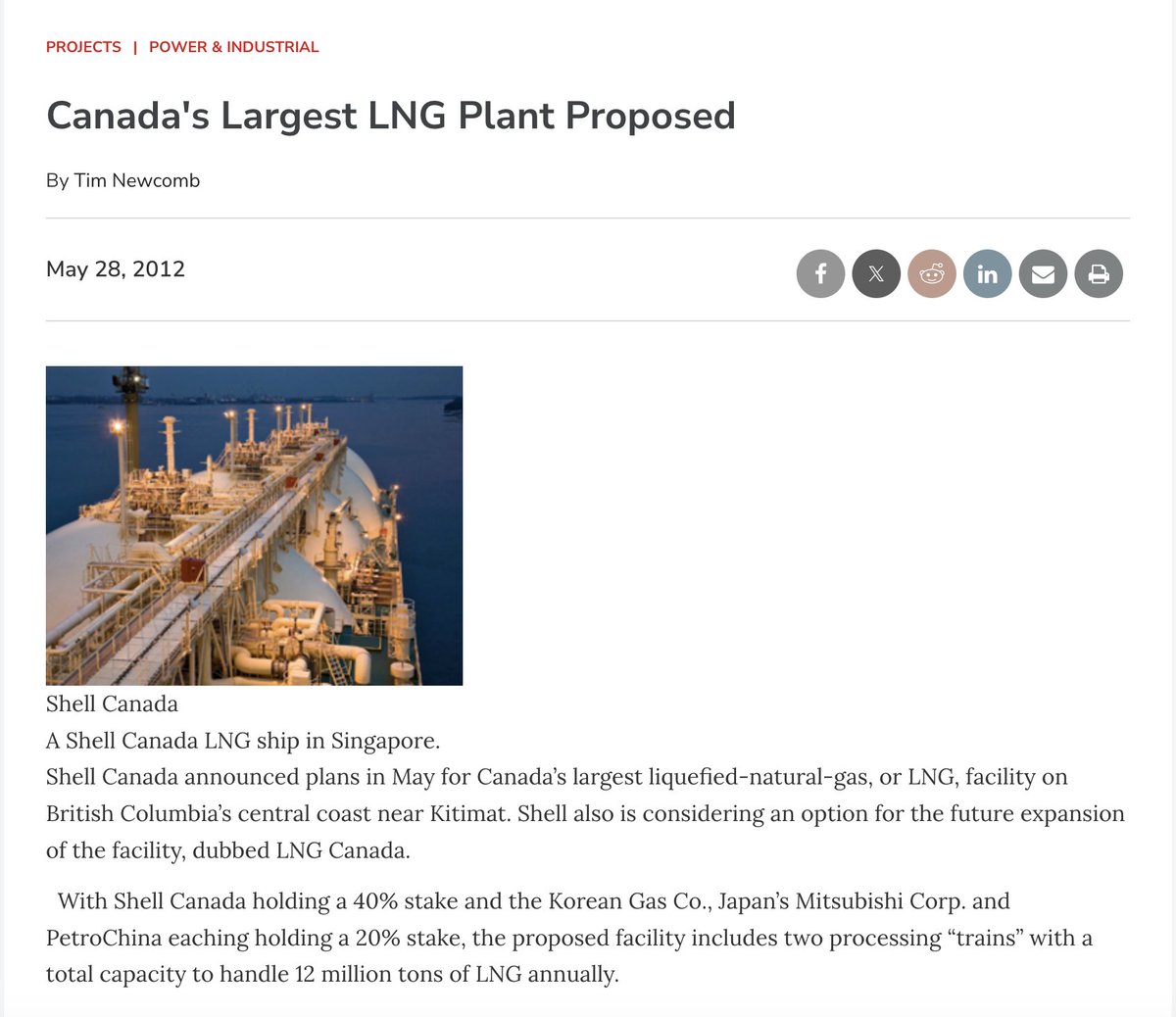It's official: LNG-mania is running wild among Canada's conservative politicians and pundits. Why, they keep asking, are we missing out on such a glorious opportunity to sell hydrocarbons to Europe -- and why won't the PM support it more vocally.
Here's why. A thread.
Here's why. A thread.
First, the facts: Russia's invasion of Ukraine has sent European natural gas prices soaring. The UK, among other countries, is in for a very difficult winter. If we had LNG terminals on the US east coast, we'd be able to help.
But we'd need a Delorean for that.
But we'd need a Delorean for that.
Why? Because up until this year, the long-term market for LNG looked....not great. Here's the IEA's forecast from 2019. iea.org/data-and-stati… 

That's the thing about the LNG business: you're making a long-term bet on the price of the commodity, one that you often can't lock in. And prices have gyrated *wildly* in recent years.
Oh, and there's that climate change thing lurking out there.
Oh, and there's that climate change thing lurking out there.
If you believe, as our oil sands companies apparently do, that we'll reach net-zero emissions by 2050, then there's almost no room for additional LNG projects.
Here's the IEA's forecast around that. See the quick peak and quick decline? That's not good for new projects.
Here's the IEA's forecast around that. See the quick peak and quick decline? That's not good for new projects.

Their report: “During the 2030s, global natural gas demand declines by more than 5% per year on average, meaning that some fields may be closed prematurely or shut in temporarily."
Declining demand = falling prices. Would you invest in a long-term project in that environment?
Declining demand = falling prices. Would you invest in a long-term project in that environment?
LNG proponents love to talk about how it will reduce emissions from coal. But here's the thing: renewables can (and will) do that too. Battery technology improvements are going to be a game changer. noahpinion.substack.com/p/decade-of-th…
But oil and gas enthusiasts refuse to see this. Here's Eric Nuttall, Canada's biggest oil and gas fund manager, in a recent piece for the @financialpost. 

Building new projects right now makes very little business sense. The PM was right about that.
But what about the past, you say! Surely he's responsible for the absence of a bunch of projects.
Not quite.
But what about the past, you say! Surely he's responsible for the absence of a bunch of projects.
Not quite.
Here's a summary of all the projects that have come before the NEB/CER. Sure seems like a lot of approvals to me.
cer-rec.gc.ca/en/application…
cer-rec.gc.ca/en/application…

In fact, the only project they've blocked is LNG Saguenay -- one that the Government of Quebec came out and rejected first. If you believe in provincial autonomy and jurisdiction (Hello, Danielle Smith!) then surely their decision should be respected. Right?
One final complaint I hear often: look at all the LNG projects in the United States!
There's a pretty big difference between the US Gulf Coast (heavily industrialized, abutted by a major oil and gas producing state) and BC's north coast.
There's a pretty big difference between the US Gulf Coast (heavily industrialized, abutted by a major oil and gas producing state) and BC's north coast.
If Alberta was on the coast and California stood between the US natural gas deposits and its only source of tidewater, the situation would probably be reversed.
But geography abides.
But geography abides.
So, should we be helping Germany and Europe? Absolutely. But unless someone has the ability to travel back in time a decade or so and convince everyone to support LNG terminals, there's no point in braying about the "missed opportunity".
Instead, let's focus on the one in front of us: the energy transition. Europe is already accelerating its plans there, by the way. So is the United States. So is China. And so on.
Let's not get left behind because some people want to live in the past.
Let's not get left behind because some people want to live in the past.
• • •
Missing some Tweet in this thread? You can try to
force a refresh










